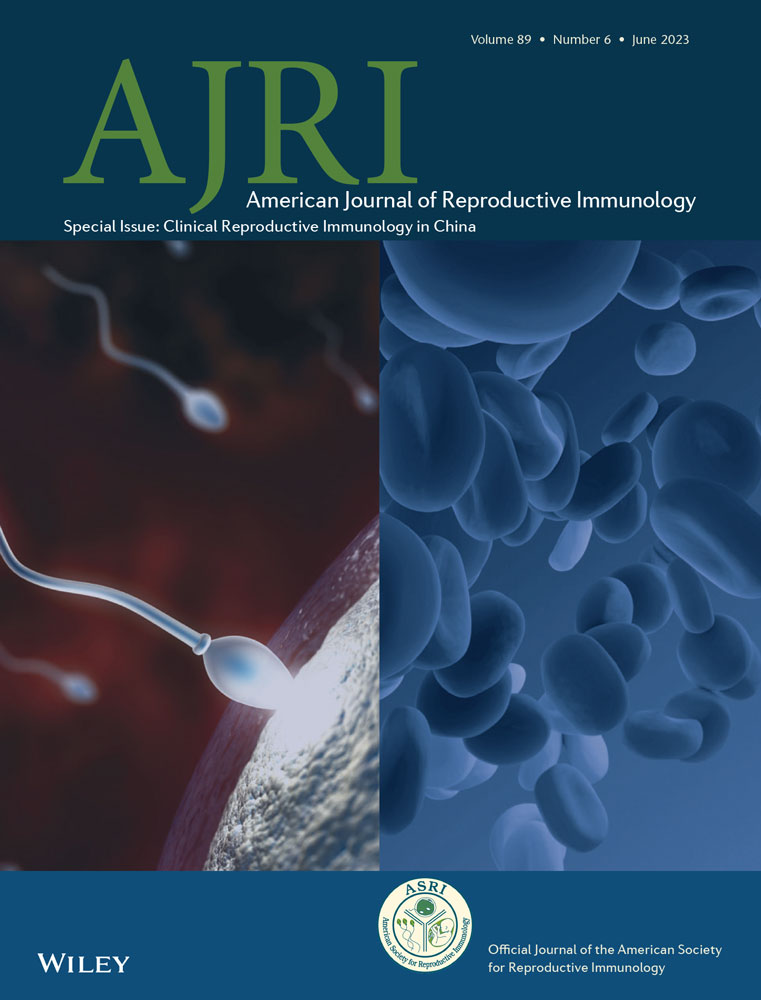Anti-Ro/SSA and/or anti-La/SSB antibodies are associated with adverse endometrial status
Both Fangting Lu and Yanshi Wang should be considered as co-first authors of this article.
Abstract
Problem
Anti-Ro/SSA and/or anti-La/SSB (anti-SSA/SSB) antibodies impair pregnancy outcomes, including embryo implantation and pregnancy maintenance. Optimal endometrial immune status is essential for successful pregnancy. However, whether these antibodies affect endometrial immune status is still unclear. Menstrual blood can be collected non-invasively, differs from peripheral blood, and can reflect the endometrial immune status. We herein focused on changes in subsets of natural killer (NK) cells and T cells in menstrual blood.
Methods of study
Menstrual blood samples from anti-SSA/SSB antibody–positive (n = 18) and anti-SSA/SSB antibody–negative control (n = 8) women were collected, and the profile of lymphocyte subsets was analyzed. The phenotypes of menstrual blood CD49a− and CD49a+ NK cells were compared, and the abundance of NK and CD49a+ NK cells in menstrual blood of the two groups was assessed. Additionally, CD4+T and CD8+T cells were investigated for their ability to secret functional cytokines.
Results
Menstrual blood contains a large number of (mostly CD49a+) NK cells, which exhibited a more exhausted phenotype with greater expression of the immune checkpoint molecules programmed cell death protein 1 and Tim-3 compared to CD49a− conventional NK cells. CD8+T cells in menstrual blood from anti-SSA/SSB antibody–positive women produced a stronger response after stimulation, accompanied by increased interferon-γ, tumor necrosis factor–α, and granzyme B secretion (P < 0.05, separately).
Conclusion
Menstrual blood cell composition differs between anti-SSA/SSB antibody–positive women and normal controls, especially in terms of CD49a+ NK cells and CD8+T cells, unbalancing the immune cell composition and inflammatory uterine microenvironment and possibly contributing to adverse pregnancy outcomes.
CONFLICT OF INTEREST
All authors who participated in the work have no conflicts of interest due to relationships with commercial/corporate interests and agreed to publication.
Open Research
DATA AVAILABILITY STATEMENT
All data included in this study are available upon request by contact with the first author or corresponding author.




